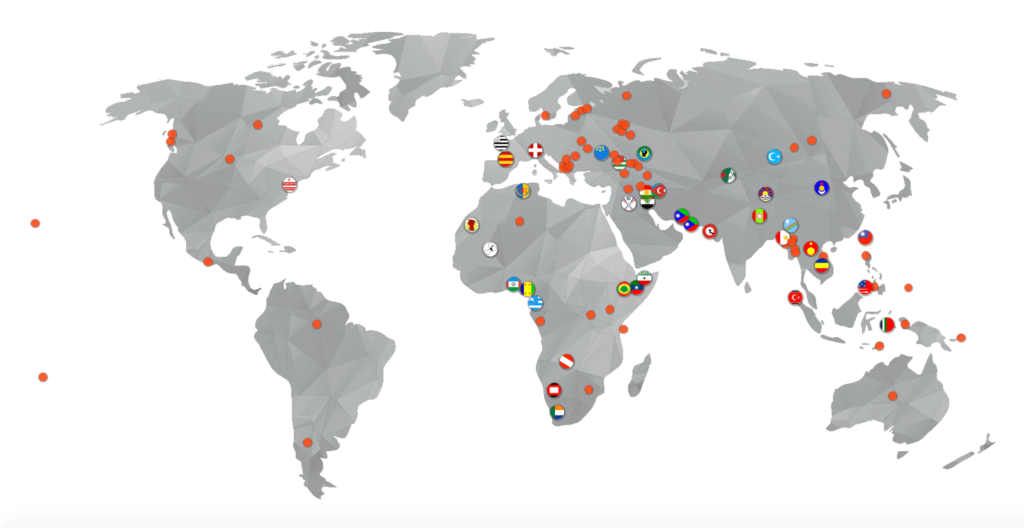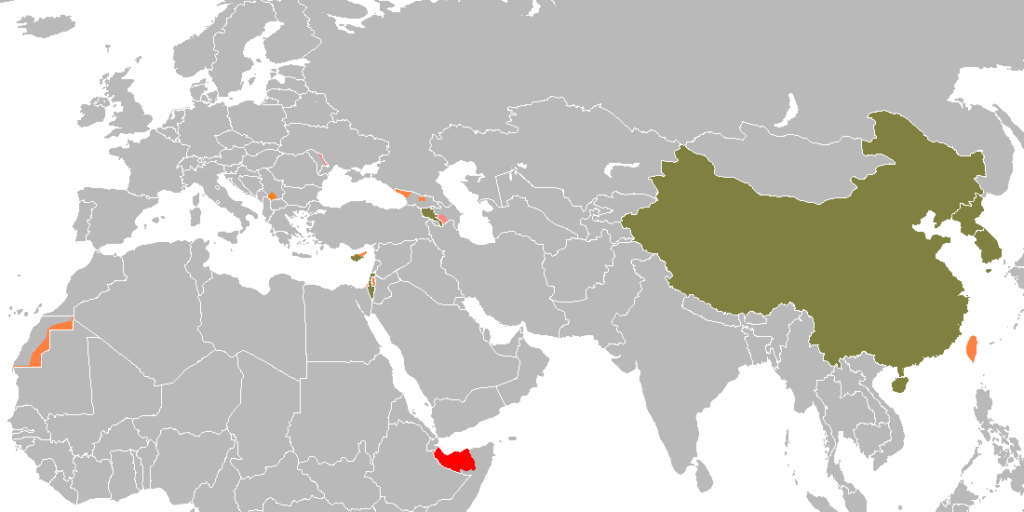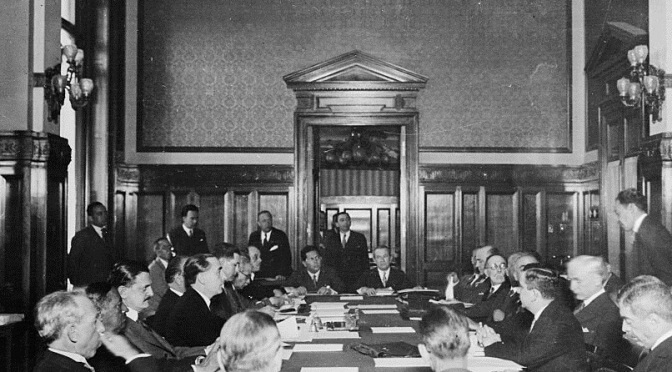The urge for total independence have always been there for the non-Bamar ethnic nationalities. The clear indication that they were desperate all along could be seen by the four ethnic nationalities membership in the Unrepresented Nations and Peoples Organization (UNPO), which was formed on 11 February 1991 in The Hague, Netherlands. It has 97 members from it inception. The founders were representatives of national movements of Estonia, Latvia, Tibet, Crimean Tatars, Armenia, Georgia, Tatarstan, East Turkestan, East Timor, Australian Aboriginals, The Cordillera, the Greek Minority in Albania, Kurdistan, Palau, Taiwan, and West Papua.

The four were the Karenni, Mon, Shan and Chin. The Karenni joined in 1993, Mon in 1996, Shan in 1997, and Chin in 2001. However, by 2010 Shan resigned, followed by Mon and Karenni in 2012 and in 2016, Chin also withdrawn from the organization due to its inability to further their aspirations properly at the global bodies and limitation to address the their conflict with Burma’s government in various world forum.
“The Unrepresented Nations and Peoples Organization (UNPO) is an international membership-based organization established to empower the voices of unrepresented and marginalized peoples worldwide and to protect their fundamental human rights,” according to its website.
“The peoples represented within the UNPO membership are all united by one shared condition: they are denied equal representation in the institutions of national or international governance. As a consequence, their opportunity to participate on the national or international stage is limited, and they struggle to fully realize their rights to civil and political participation and to control their economic, social and cultural development. In many cases, they are subject to the worst forms of violence and repression.”
The members are generally not represented diplomatically (or only with a minor status, such as observer) in major international institutions, such as the United Nations (U.N.). As a result, their ability to have their concerns addressed by the global bodies mandated to protect human rights and address conflict is limited, wrote the Wikipedia in its observation, which is largely true.
However, “some former members, such as Armenia, East Timor, Estonia, Latvia, Georgia and Palau, have gained full independence and joined the United Nations (U.N.),” while the majority remain as non-state nations and still largely been denied the rights of self-determination.
Against this backdrop, let us first look at the procedure on how to become a country.

How to become a country?
Secession and total independence all lead to the formation of a country, or should we say a nation-state. Some academicians coined the words as state-nation, to be more all-embracing and comprehensive as most state are not homogeneous but multi-ethnic and heterogeneous.
“Whereas a nation-state insists on alignment between the boundaries of the State and nation, a state-nation allows for a multiplicity of “imagined communities” to coexist beneath a single democratic roof. It recognizes that citizens can have multiple, overlapping identities that need not detract from a larger sense of national unity,” wrote Milan Vaishnav in his piece titled “From Nation-State to State-Nation” in The Hindustan Time, on December 18, 2019.
But let us deal with this topic separately some other time.
Ethnic groups or ethnic nationalities within Burma or Myanmar, who feel they are being suppressed and occupied by the Bamar ethnic dominant group, aspiring to become totally independent nations aiming for secession have to take into account of what they should expect in trying to wrest control of their territories and become a sovereign nation.
According to Shafi Musaddique report in CNBC on 26 April 2018: “The Montevideo Convention held in Uruguay in 1933 said that a region must meet four requirements to become a state; a permanent population, a defined territory, a government and the ability to form relations with other nation states.”
“Other conditions must be met, including clear evidence that a majority of people have freely chosen independence, that minorities are welcome and respected. A state must also be able to agree divorce terms mutually with the country it breaks away from,” writes the report.
Regarding what should be done to become a nation-state Remy Melina describes three easy steps in Live Science, on 8 February 2011, to declare independence, gain recognition and join the United Nations.
According to Melina, the first step includes “To establish a new country, the country must first satisfy the international laws rules that all free countries generally acknowledge and follow set forth by the Montevideo Convention on the Rights and Duties of States, adopted in 1933.”
The second step of gaining recognition, “In order to be legitimate, a new country must be recognized by existing states within the international community. Each existing state bestows recognition at its own discretion, and several entities (including Taiwan, Palestine and Kosovo) are recognized as legitimate states by some countries, but not by others.”
The third step is joining the United Nations. “The United Nations asserts that, because it itself is not a country, it does not possess any authority to recognize a state or government . But being admitted into the U.N. goes a long way toward a new country becoming recognized by the international community.”
However, a seemingly easy procedure to become a member in the United Nations is in reality a major hurdle for the aspiring new nations, where Melina explained: “In order to apply for U.N. membership, the aspiring country first needs to send an application letter, along with a declaration that it will follow the United Nations charter, to U.N. Secretary General. The application is then passed along to the Security Council, where it must get the affirmative votes of at least nine of the 15-member Council. If any of the council’s five permanent members (China, France, the Russian Federation, the United Kingdom of Great Britain and Northern Ireland, and the U.S.) vote against the country, the application does not go forward.”

“If approved, the Council’s recommendation for admission is then presented to the General Assembly for consideration, which consists of the current 192 U.N. member states. A two-thirds majority vote is needed for the new country to gain admission into the U.N., and if approved, its membership becomes effective on the date the resolution for admission is adopted.”
Territorial integrity and non-interference
The problem of United Nations recognition boils down to the consent of the existing nations, which are U.N. members, particularly the United Nations Security Council (UNSC) five permanent members which were Cold-War rivals and the Cold-War-like situation exists even today.
“Recognition of a new state essentially means legally recognizing the transfer of sovereignty over a territory from one authority to another. An international body, including the U.N., cannot just take away territory without the permission of the original “host” state. To do so would be a violation of one of the defining rules of the system of states,” wrote Rebecca Richards, Lecturer in International Relations, Keele University, in The Conversation titled: “How does a country become a country? An expert explains,” on August 3, 2017.
In other words, territorial integrity and non-interference international norms are paramount, even though the U.N. also accepts the rights of self-determination as a cornerstone for mankind.
Rebecca Richards quite clearly explained in the same article on how this kind of situation is being handled in practical terms, in today’s world as follows:
“International law states that people have the right to determine their own destiny, including political status. Our right of self-determination is enshrined in the UN Charter, and clarified in the International Covenant on Civil and Political Rights. This could be taken as the right to have sovereign statehood recognized by the international community. However, it’s most often interpreted as the right of a population to determine how they are governed and who governs them. In other words, self-determination in today’s world most often pertains to choices within an existing country rather than as a path to new statehood.”
# End of Part II.











Leave a Comments